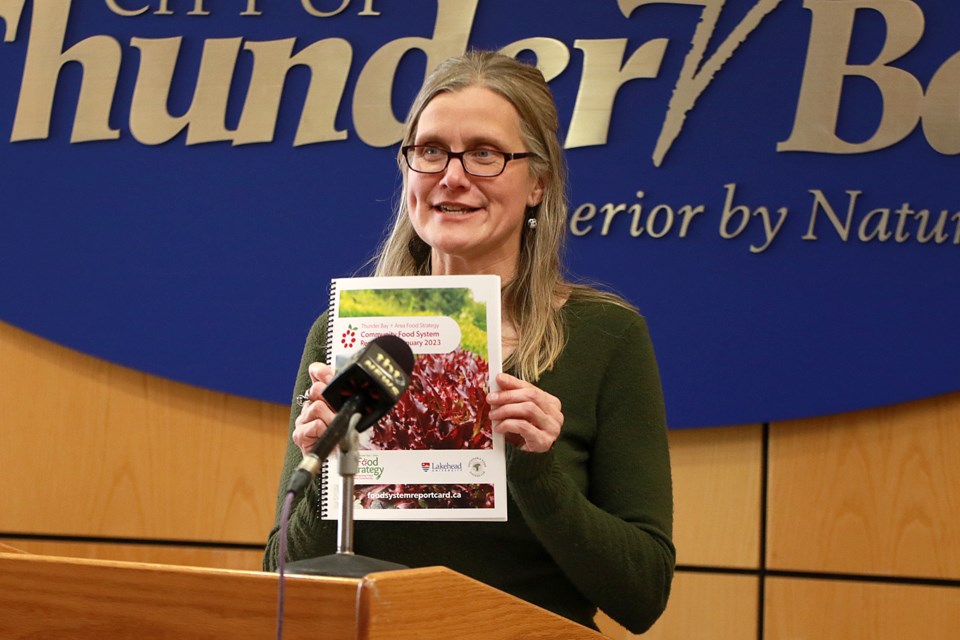THUNDER BAY — The Community Food System Report Card shows Thunder Bay has plenty of work to do to ensure the food security of all who live in the city.
Released on Wednesday by the Thunder Bay and Area Food Strategy, the 79-page document shows the area is lacking on many fronts, including food production and infrastructure and the rising cost of food, which is not unique to the city, means more people than ever are struggling to put food on the table.
The news isn’t all bad.
The City of Thunder Bay, for example, has met its goal of procuring at least 30 per cent of its raw-food budget from local sources, and urban agricultural practices, like community gardens, appear to be on the rise.
Karen Kerk, coordinator at the Thunder Bay and Area and Food Strategy, said the purpose of the report is get people engaged and realize the importance and need for a strong local food system.
It’s something the pandemic made abundantly clear, she said.
“Absolutely, the pandemic has taught us a lot of things. Before the pandemic, shortages at the grocery store were non-existent and now we’re seeing it on a pretty regular basis,” Kerk said. “I know early on in the pandemic, a lot of people were really concerned about food and they bought up all they could from local producers and local suppliers.
“Now that’s kind of flat-lined again. I’d still say there’s a lot of interest in local food, and a lot of support for it. But we’ve kind of relaxed a little bit too much around that and I think that’s something we should keep at a high level all the time.”
The report, however, says far too many people in Thunder Bay do not get enough healthy foods or foods they would prefer, pointing not to a lack of food, but a failure of social structures, including poverty, isolation and corporate concentration of the food system.
It was released in the same week Metro released its financial reports, showing profits climbing 11 per cent.
Kerk said in the time it took to finalize the report, the Thunder Bay District Health Unit had to reissue its nutritious food basket twice in 2022, because food prices skyrocketing.
“I think they’re estimating it’s $1,036 to feed a family of four a healthy diet for a month. I can tell you, as a parent of teenagers, that is not enough. The increasing price is a big issue, but it’s a bigger issue for the people whose incomes aren’t increasing. So, anybody living on a fixed income, anybody earning their income through Ontario Works or Ontario Disability, anyone on a pension, they’re really struggling to make ends meet,” she said.
The report shows that 89 per cent of Indigenous adults in the city fall below the before-tax low-income cutoff, with 30.7 per cent of the Indigenous population living in food-insecure households, compared to just 13.2 per cent of White or non-visible minorities.
The report also says community initiatives are struggling to fill the gaps, with a program like the soup kitchen at the Dew Drop Inn reporting a 50 per cent increase in people accessing daily meals. Wildlife harvesting is down over the past decade, an indication fewer people are relying on the land and water for food and job related to agriculture and agri-food production is up — though the number of jobs in food production has remained stable, compared to other industries.
The report notes that most of the food production is done at the local level, with the exception of dairy producers. In other words, locally produced food tends to stay in the region and doesn’t make its way into the national grocery equation.
Mayor Ken Boshcoff said it’s important to take the food and agricultural needs of the community seriously.
“We have the opportunity as a city, as a district and as a region of really being a leader in terms of self-sustainability and diversity in our food supply,” the mayor said.
